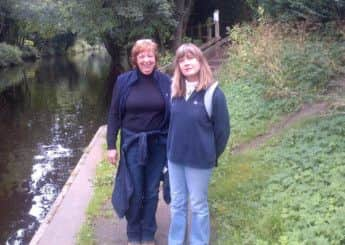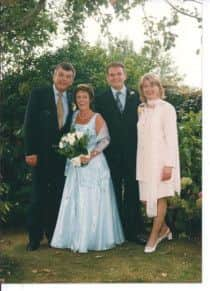The heartbreak of living with a loved one cruelly struck down by dementia


Angela was just 60 when she was diagnosed with the rare form of dementia. Unlike Alzheimer’s disease where memory loss is a predominately early sign, Pick’s disease causes behaviour and personality changes.
“Physically she is as fit as a butchers dog, mentally she is a naughty child of two, I never know what she is going to do next,” said John.
Advertisement
Hide AdAdvertisement
Hide AdAfter almost 40 years of marriage, John found himself in a new role as a carer for Angela, something he said he knew nothing about.


“I am a county councillor, I should have known where to turn to but I just didn’t.
“There are 60,000 of us unpaid carers across North Yorkshire, people who haven’t had any training and know nothing about being a carer, who became a carer, but it is in our hearts. I don’t think any carer is ever sure of themselves, there is no training and it is very trying at times.”
John gave up his career in the food industry, five years before he had planned, in order to dedicate his time to caring for his wife.
“I just needed to be there,” he said.


Advertisement
Hide AdAdvertisement
Hide AdThe couple’s two grown up children live abroad and like most married couples, the pair had planned their retirement.
“We were going to look at buying a little place in Normandy, nothing fancy just somewhere for holidays and perhaps get a canal boat,” he said. “They were our dreams, but obviously they are just pipe dreams now. Losing five years of planned income means it isn’t possible, it wouldn’t be possible with Angela’s illness. We have both lost out because of her illness.”
Due to the form of dementia Angela has her behaviour can often be erratic, making it difficult for the pair to go out without other people to help John .
“We used to have a very large social circle, but the phone stops ringing. Only the really true friends stick around. I am lucky, I have got a great support network of close friends who help. Angela goes out walking and plays bridge with her friends which is great for her, and for me.”
Advertisement
Hide AdAdvertisement
Hide AdJohn has also found support through carers resource, dementia forward and the Tees, Esk and Wear Valley Trust and has recently turned to social services for the first time.
He said: “Just last week she went out for a walk and ended up walking 30 miles, she walked to Wetherby, went to the supermarket, then on to Collingham and back, she was out for hours.
“I was so worried, it isn’t the first time, I thought ‘how long do I leave it before I call the police?’ it is hard, I worry that she isn’t safe. It can be very trying, it can affect ones health. I think I suffer from anxiety of sorts, all carers will be the same.
“I wake up at 5.30am each day and have three hours of me time, it seems selfish but I need that time.”
John described Angela’s diagnosis as heartbreaking.
Advertisement
Hide AdAdvertisement
Hide AdHe said: “The easiest thing in 2008 would have been to run, then you remember your marriage vows, some people would be tempted to run, but I just couldn’t consider it.
“We still have our laughs together we still get along so well.
“Conversations are the thing I miss the most, going on holiday, we used to like going to France. “There were a lot of things we wanted to do with retirement that I just can’t.
“My biggest fear is if something were to happen to me, if I got ill, how could I look after her? How would we cope? I don’t want her to go into a care home, it just wouldn’t suit her as a person, she will stay at home with me for as long as possible.”